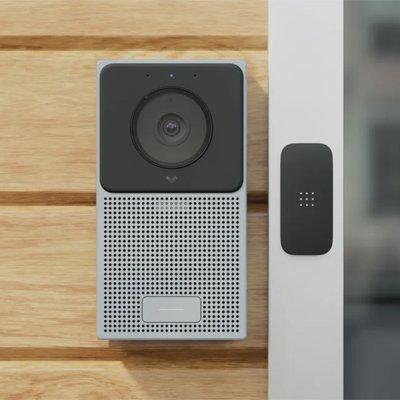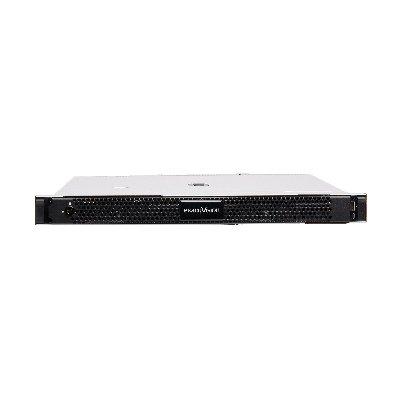Security Manufacturers: Does Size Matter?
Editor Introduction
The manufacturers behind today’s security technologies are a varied bunch. There are large manufacturers with deep pockets and plenty of resources. And there are smaller manufacturers who are nimble, can react faster to changing market conditions and to whom each customer represents a hard-fought win. There are also plenty of manufacturers in the middle ground. But what impact does the size of a company have on the quality of its products? We took the question to this week’s Expert Panel Roundtable: Is there a correlation between the size of a manufacturer and the quality of its products – for better or worse?
Size does matter, but not always. Quality can often be a moving target in a smaller organisation since resources are scarcer and quality assurance takes a back seat to more immediate revenue needs. This, of course, is short-sighted as low-quality impacts sales and eventually becomes a self-fulfilling prophecy. On the other hand, many important innovations come from small startup companies, and the ability to react quickly to correct any quality issues is enhanced by fewer layers of bureaucracy in smaller, nimbler companies. Is the quality of a Mercedes Benz better than a Chevy because Mercedes is a smaller enterprise than GM? No, it’s more likely that high quality standards and habits have been more effectively woven into the Mercedes culture. A culture of quality dictates the quality of the end-product. Size does matter, it’s just not the decisive issue when it comes to making decisions about business partners.
The commitment and dedication to product quality can be found in companies of all sizes. The quality of the products has less to do with size of the manufacturer than the commitment to ensure quality in both products as well as support. One could argue that larger companies have more resources for product development in general; but that doesn’t automatically imply that sufficient resources are allocated to – and necessary investments are made in – quality management. In general, smaller companies’ products often have to be as good or better to be competitive in the marketplace. But sometimes, smaller companies, especially those bringing newer technologies to market, do not invest sufficiently in quality management. Customers’ perceptions of a product’s quality are also influenced by the quality of support. A superior level of support generally translates into high marks on product quality since customers’ issues with the products are resolved promptly.
It is quality that makes a manufacturer stand out in the market, not the size of the business! Quality largely comes down to good design and innovation, to ensure products are highly competitive and relevant to the market. Certainly, larger companies can afford bigger permanent design and development teams, but smaller producers can easily sub-contract expert support or nurture up-and-coming talent which can offer fresh perspectives and ideas. Smaller businesses can often offer greater flexibility and freedom to young designers and innovators. The ethos and agility of the business is also vital. A large company which is focused purely on high profit margins is less likely to provide the best solutions, or even the best value for money. Smaller producers can provide high quality products that will always shine through in a crowded market, as many security buyers look specifically to invest their budget in reliable and robust solutions.
The size of a manufacturer is not as important as the overall culture of the organization. Some manufacturers, due to the way they are strategically structured, are more agile and responsive in meeting their customers’ needs than other companies. These are the same manufacturers that are typically ahead of the curve in product development, innovation, and customer service and satisfaction because they use the valuable input received from their customers to develop high-quality solutions. These companies also tend to work with other successful manufacturers to ensure their products integrate. These integrations take advantage of each other’s core competencies and technologies, which improves overall performance and adds value for the end user. A manufacturer who ensures product quality, superior after-sales service and personal working relationships will be successful in the security industry.
One could assume the size of a manufacturer directly correlates to the quality of its products, but it’s not always the case. A larger company would have better access to resources and expertise in areas like product, engineering and quality assurance. However, things such as company philosophy and direction also drive the quality of a product. Companies dedicate time and resources to ensure they deliver a high-quality product to market. The argument could also be made that companies in an infant stage must deliver a quality product to be successful, and that as they grow, they may lose some control over this quality as products are outsourced to different manufacturers. Ultimately, the quality of a manufacturer’s products is based on their commitment to quality, their processes and the partners they choose to build products. Size may create more resources, but companies of all sizes can deliver high-quality products.
I have spent the last 30 years working in the security industry for some of the largest and some of the smallest manufacturers in the industry. In a study published in 2011, “Prices, Plant Size, and Product Quality” by Maurice Kugler of the World Bank and Eric Verhoogen of Columbia University, the conclusion is that larger plants can afford to purchase higher quality input materials and produce higher quality outputs, at a lower cost than smaller manufacturers. However, larger companies allow smaller manufacturers to leverage the company’s size and superior hardware products for superior hybrid hardware/software products at lower costs. Additionally, smaller companies with flatter organisations can be vastly nimbler when customers need customised software or highly complex solutions adapted to their business rules and climate. So, while there can be a differentiation in this area, the rules don’t necessarily apply universally due to this unique model.
Editor Summary
Size matters, except when it doesn’t. There’s no question that larger companies have more resources to devote to delivering on customer needs. But they may also be burdened with extra bureaucratic costs. And turning a large ship takes more effort. Meanwhile, smaller, entrepreneurial companies offer advantages but may face limitations in terms of resources. Although a company’s size can impact its ability to deliver superior products, there are also many other variables, such as a commitment to quality and a culture of customer service. There are plenty of elements to weigh as security customers choose carefully among the available technology options – and the companies behind them.
- Related companies
- TDSi
- Open Options
- Sielox, LLC
- 3xLOGIC, Inc.
- ISONAS, Inc.
- Oncam
- Related categories
- Access control software
- Video Surveillance software
- IP cameras
- Storage
- View all news from
- TDSi
- Open Options
- Sielox, LLC
- 3xLOGIC, Inc.
- ISONAS, Inc.
- Oncam
Expert commentary
Security beat
Security bytes
- Getting To Know Dan Grimm, VP And General Manager Of Computer Vision At RealNetworks
- Big Wins And The Importance Of Showing Up: Insights From SecurityInformed.com Editor Larry Anderson
- Setting Goals, Business Travels And Radioactivity: Success Secrets From Tiandy's John Van Den Elzen
- Getting To Know Jeff Burgess, President/CEO At BCDVideo
5 Surprising Findings From OT Vulnerability Assessments
DownloadMulti-Residential Access Management And Security
DownloadGuide For HAAS: New Choice Of SMB Security System
DownloadHikvision: Solar Powered Product Introduction + HCP
DownloadFacial Recognition
DownloadVerkada TD52 Cloud-Based Video Intercom
exacqVision IP08-64T-R1XW-E X-Series 1U Rdnt IP NVR 64TB RAID5 Windows OS with 8 IP Ent Lic
Climax Technology TouchPanel-3 7” Color Graphic Touchscreen Panel





















